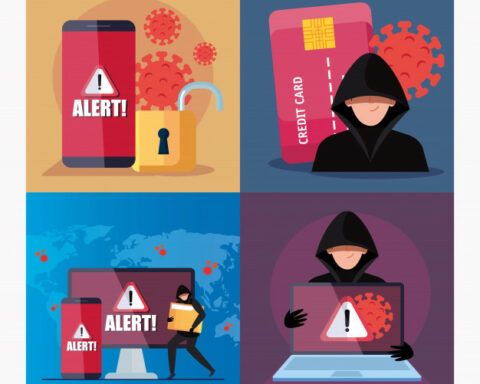Invoice fraud involves the manipulation or fabrication of invoices for illegitimate purposes, often resulting in financial losses for businesses or individuals. This type of financial crime encompasses various deceptive practices, such as creating false invoices, altering legitimate invoices, or submitting invoices for fictitious goods or services. Invoice fraud can occur at different stages of the invoicing process, including creation, approval, and payment. Perpetrators of invoice fraud may exploit weaknesses in internal controls, impersonate legitimate suppliers or vendors, or collude with insiders to perpetrate their schemes. The consequences of invoice fraud can be significant, leading to financial losses, reputational damage, and legal repercussions for the victimized parties. In the jurisdictions of the Netherlands and the European Union, invoice fraud is considered a serious offense that violates financial regulations and may result in civil or criminal penalties. Regulatory authorities and law enforcement agencies employ investigation, detection, and prevention measures to combat invoice fraud, aiming to safeguard the integrity of financial transactions, protect businesses and consumers, and maintain trust in the financial system.
Invoice fraud, a prevalent form of financial crime, presents significant challenges across regulatory, operational, analytics, and strategic dimensions within the Fraud Risk Management Framework (FRMF), particularly in the Netherlands and the broader European Union (EU). These challenges intersect with financial and economic crimes and implicate the Environmental, Social, and Governance (ESG) framework. Attorney Bas A.S. van Leeuwen of Van Leeuwen Law Firm plays a crucial role in navigating the legal intricacies associated with these challenges.
(a) Regulatory Challenges:
-
European Union Directives: The EU has established directives aimed at combating fraud and enhancing transparency in financial transactions. These directives include the Directive on Combating Late Payment in Commercial Transactions and the Directive on Electronic Invoicing in Public Procurement. Compliance with these directives is essential for preventing invoice fraud and ensuring the integrity of financial transactions. Attorney van Leeuwen assists organizations in understanding and adhering to EU directives related to invoice fraud.
-
National Legislation in the Netherlands: The Netherlands enforces its own set of laws and regulations concerning fraud and financial crimes, including invoice fraud. These include provisions of the Dutch Criminal Code related to fraud, forgery, and falsification of documents. Additionally, the Dutch Civil Code governs contractual obligations and liabilities related to invoicing and payment processes. Attorney van Leeuwen advises organizations on complying with Dutch laws and regulations to prevent and address invoice fraud.
-
Tax and VAT Regulations: Invoice fraud often involves manipulation of tax and VAT information to evade taxes or claim fraudulent refunds. Therefore, compliance with tax and VAT regulations is crucial for preventing and detecting invoice fraud. The Dutch Tax Authorities (Belastingdienst) oversee tax compliance in the Netherlands, while the EU sets directives and regulations related to VAT. Attorney van Leeuwen assists organizations in understanding their tax and VAT obligations and implementing controls to prevent tax-related invoice fraud.
(b) Operational Challenges:
-
Invoice Verification and Approval: Ensuring the accuracy and authenticity of invoices is essential for preventing invoice fraud. However, organizations face challenges in verifying the legitimacy of invoices, especially in cases of complex supply chains or high volumes of transactions. Attorney van Leeuwen collaborates with organizations to establish robust invoice verification and approval processes, including validation of vendor information, matching invoices with purchase orders, and implementing segregation of duties.
-
Vendor Due Diligence: Conducting thorough due diligence on vendors is crucial for mitigating the risk of invoice fraud. However, organizations may encounter challenges in verifying the legitimacy and integrity of vendors, particularly in cases of third-party intermediaries or subcontractors. Attorney van Leeuwen assists organizations in developing risk-based vendor due diligence procedures, including background checks, financial screenings, and reputation assessments, to identify potential red flags and prevent invoice fraud.
(c) Analytics Challenges:
-
Data Analysis and Pattern Recognition: Analyzing invoice data is essential for identifying patterns indicative of invoice fraud, such as duplicate invoices, inflated prices, or fictitious vendors. However, organizations face challenges in accessing and analyzing large volumes of invoice data from disparate sources. Attorney van Leeuwen collaborates with organizations to leverage data analytics tools and techniques, such as anomaly detection and pattern recognition, to detect suspicious invoices and investigate potential instances of fraud.
-
Invoice Fraud Detection Models: Developing fraud detection models tailored to invoice data requires expertise in data analytics, fraud detection techniques, and domain knowledge. However, designing and implementing effective fraud detection models can be complex, requiring access to relevant data and advanced analytics capabilities. Attorney van Leeuwen assists organizations in developing and deploying fraud detection models that leverage machine learning algorithms and statistical techniques to identify potential instances of invoice fraud.
(d) Strategy Challenges:
-
Procurement and Payment Controls: Implementing robust procurement and payment controls is essential for preventing invoice fraud. However, organizations must strike a balance between implementing controls that mitigate the risk of fraud while maintaining efficiency and flexibility in procurement processes. Attorney van Leeuwen works with organizations to assess their procurement and payment processes, identify control weaknesses, and develop strategies to strengthen controls and prevent invoice fraud.
-
Internal Reporting and Whistleblower Protection: Establishing effective internal reporting mechanisms and whistleblower protection policies is critical for detecting and addressing invoice fraud. However, organizations must create a culture that encourages employees to report suspected instances of fraud without fear of retaliation. Attorney van Leeuwen assists organizations in developing internal reporting channels, providing whistleblower protection, and investigating reports of invoice fraud to ensure timely detection and response.
In conclusion, addressing the challenges associated with invoice fraud within the FRMF requires a comprehensive approach encompassing regulatory compliance, operational controls, advanced analytics, and strategic risk management. Attorney Bas A.S. van Leeuwen of Van Leeuwen Law Firm plays a central role in guiding organizations through these challenges, ensuring compliance with relevant laws and regulations while developing effective strategies to prevent and detect invoice fraud in the Netherlands and the wider European Union.



